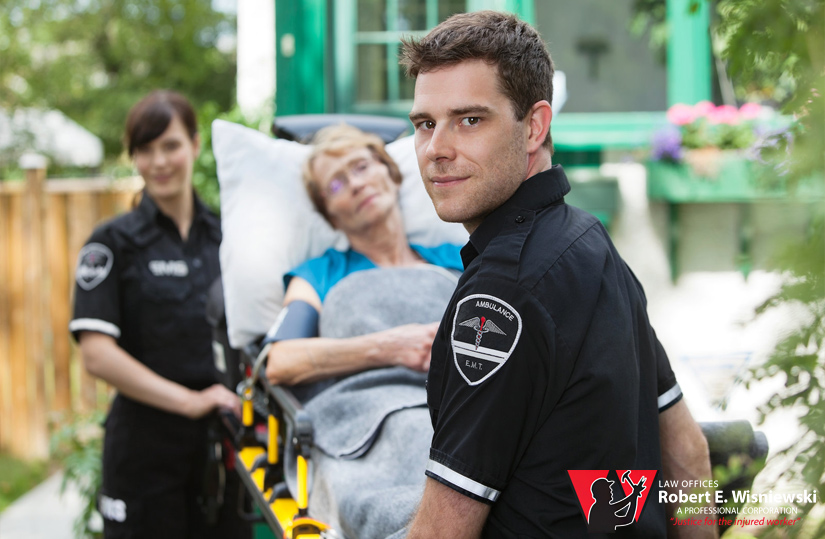In March 2020, 7710 Insurance — the only national insurance carrier dedicated solely to providing workers’ compensation for fire and emergency services — sent a voicemail to Central Arizona Fire and Medical Authority. In the message, 7710 stated that it would not pay any indemnity (lost time) or medical benefits for anyone placed in quarantine.
The impression was that 7710 would not cover anyone exposed to coronavirus. But when contacted by an Arizona news agency, 7710 said that the earlier report had been mistaken.
So what’s the state of COVID-19 workers’ compensation coverage in Arizona today?
Workers’ compensation coverage for COVID-19
On March 23rd, less than a week after 7710 Insurance indicated it would not cover coronavirus exposures, Arizona Governor Doug Ducey issued an Executive Order defining which essential services were deemed necessary during this pandemic. Part of Gov. Ducey’s order listed essential government functions that included all first responders, law enforcement, emergency management personnel, emergency dispatchers and those supporting 911 services.
Coverage should exist for coronavirus treatment if a first responder contracts the virus from work exposure. In fact, according to one insurance company, Arizona law permits workers’ compensation coverage of infectious diseases when it is shown that the illness is related to work duties.
Working with attorneys
During the COVID-19 threat, workers’ compensation attorneys are able to provide important legal services to all injured workers. But Arizona’s valuable first responders, healthcare workers, supermarket clerks and all other essential employees run a greater risk of exposure and infection from coronavirus.
Therefore, as our attorneys continue to assist those who are injured on the job, we are keenly aware of the special challenges our front-line workers face. This is why it’s important to contact an attorney who is deeply experienced in workers’ compensation.
COVID-19 and first responders
The Centers for Disease Control and Prevention (CDC) published specific guidelines for first responders to follow if they anticipate being in close contact with anyone who possibly has or is confirmed to have COVID-19. In addition to these guidelines, the same general precautions apply for first responders as for anyone. These include:
- Wash your hands often
- Don’t touch your face
- Wear a cloth face cover when around others (Specifically, for first responders, once you contact the patient, you should immediately place a face mask on the patient. If a coronavirus infection is suspected, you should wear the proper personal protective equipment when providing service to that patient and to protect yourself.)
- Cover coughs and sneezes
- Clean and disinfect surfaces like tables, doorknobs, light switches, etc.
What to do if you think you may be infected
What can workers do if they believe that they contracted COVID-19 from their job?
In Arizona, an injured worker bears the burden of establishing a compensable claim. The injured worker must show that activity within the course of employment is the medical cause of the injury.
If a worker tests positive for COVID-19 and believes they contracted it at work, these are a few of the factors that their workers’ compensation attorney must consider:
- The nature of the job
- The worker’s exposure to individuals who are known to have tested positive for COVID-19
- Whether or not the employer provides personal protection equipment to the worker
- The workers’ amount of exposure to other individuals outside of the place of work
Every case is unique and will present with different facts. For first responders, it’s important to follow the precautions given above and to adhere to your agency’s protocols to ensure your claim is compensable if one needs to be filed.
If you are a healthcare professional, first responder or other worker deemed essential, and you have tested positive for COVID-19 (or if you are a family member of such a person who has died as a result of COVID-19), our firm will provide you with a free evaluation of your workers’ compensation claim.




 Back Injury at Work
Back Injury at Work Shoulder Injury at Work
Shoulder Injury at Work Work-Related Car Accidents
Work-Related Car Accidents Electrical Accidents & Injuries
Electrical Accidents & Injuries Post Traumatic Stress Disorder
Post Traumatic Stress Disorder Slip, Trip & Fall Injury
Slip, Trip & Fall Injury